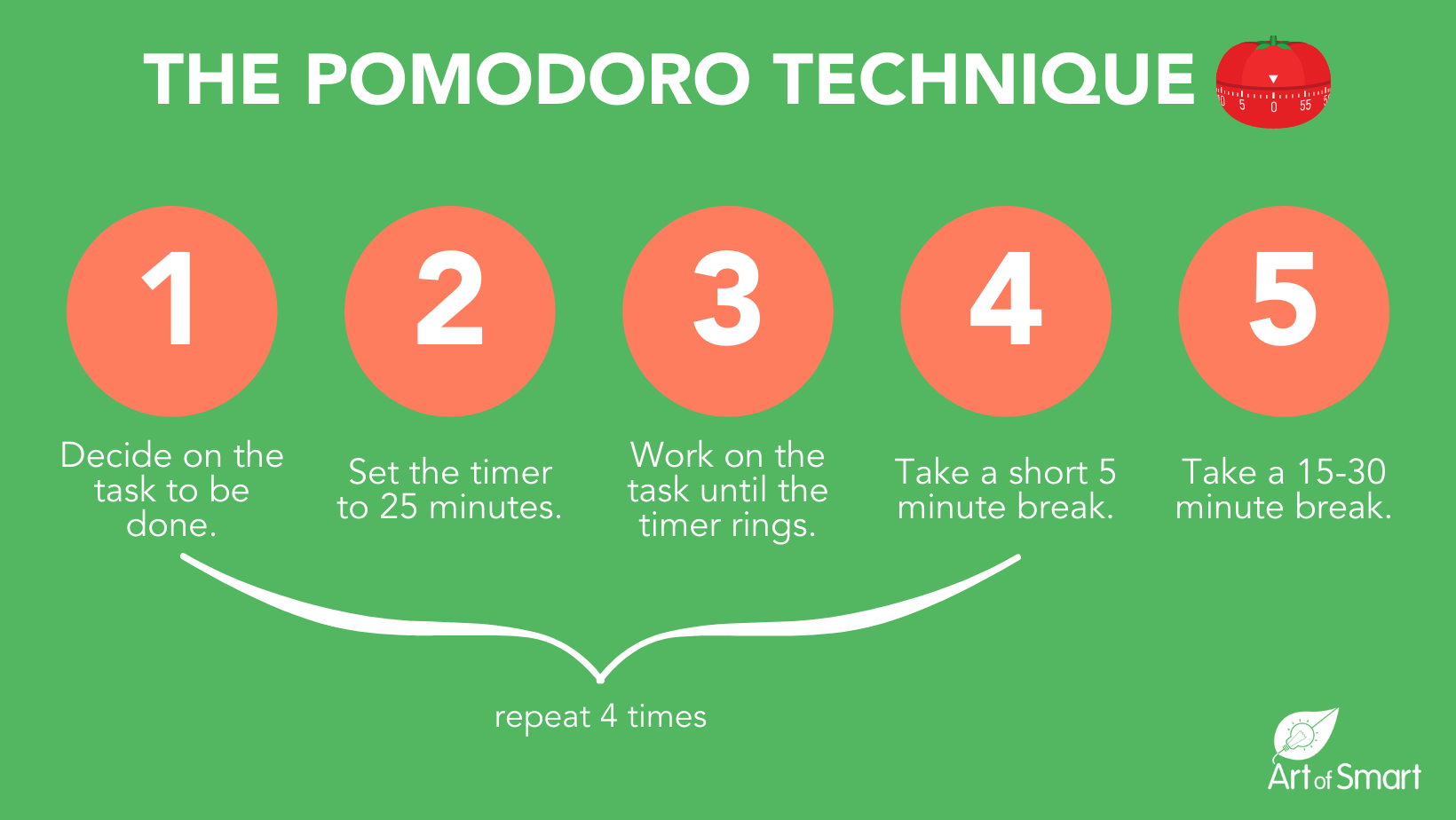Do you have a child who just doesn’t seem to be able to focus on their schoolwork? Are they unfocused, and, despite best intentions, not getting their study done and you just want to help them stop procrastinating study?
Never fear, we have a guide here to help yourself and your child beat procrastination and ace their HSC year.
Keep reading to learn the tricks!
What is procrastination?
Step #1: Schedule the week
Step #2: Work to specific deadlines
Step #3: Create space for study breaks
Step #4: Get rid of distractions
Step #5: Give your child a set bedtime
Step #6: Suggest study groups
Step #7: Create a set study space
What is procrastination?
Before we go any further, we need to understand what procrastination actually is. Procrastination.com visualises this phenomenon as a bunch of tasks, all lined up neatly for completion, before being jammed into one big ball of activity at the latest possible time.
Instead of working on what you should be doing, you complete minor tasks and find alternate activities.
There are several reasons why students (and, let’s face it, adults too) procrastinate. Often it’s because we fear failing and want to avoid tasks. It can also be a means of winning back some control over our day and doing things the way we want to do it.
Now that we understand what procrastination is, it’s time to help your child stop procrastinating study!
Here’s our 7 simple steps:
Step #1: Schedule the week
One of the biggest reasons that students procrastinate is because they don’t know what to do next!
Coming home from school and having to decide on the afternoon’s activities can add unneeded stress. It also means your child is relying entirely on their own self-control, which can be problematic, as their self-control isn’t always great.
Instead, propose that your child has a consistent schedule that they follow week-to-week. Help them to plan it out, so their days are predictable and therefore more achievable.
Things that should be considered in a weekly schedule are:
-
- Set times of study for each subject (including any specific content that needs to be covered in that week)
- Eight hours of sleep a night
- At least two times a week to socialise and keep in touch with friends
- Regular exercise (at least 60 minutes a day)
- Downtime to complete activities of interest
- A bit of ‘buffer’ time, just in case something goes wrong throughout the week
By having a timetable, your child should feel more inclined to study, as they can see tangible detriment if they do not. It also means that as a parent, you can be on top of how your child is progressing, which will help you to support them better.
Step #2: Work to specific deadlines
This suggestion is similar to the one above, in that it acknowledges the need for structure as a way to minimise procrastination.
Help your child to finish a certain amount of study (like a practice test, or an essay) in a certain amount of time. Put a timer on so that you both know precisely what should have been completed.
This is a simple yet effective tip, as it creates a clear goal for your child to work towards. It also increases motivation. You can check out this article to learn more about the benefits of timed study.
Here’s a summary:
-
- Students can have mock exam conditions that keep them on track
- Studying within a time frame keeps you motivated
- Your child will have a clearer sense of direction
- Your child will be on schedule (and you can confirm this!)
The biggest key to stop procrastinating study is finding other positive things to fill its space, and that’s exactly what timed study is aiming to do!
Step #3: Create space for study breaks
As much as study is important, it’s also vital that you give your children the breaks they need. Ideally, senior high school students shouldn’t be studying for more than two hours at a time (even less is good, if it can be helped).
This is because attention spans dwindle quickly. The cerebrum, or the large most outer part of the brain, is responsible for most of our learning. It controls conscious thinking, reading and general understanding. Like the rest of our body, it gets tired!
One great method we have recommended before is the Pomodoro Method.
Getting your child to use it as part of their study routine will really encourage good study habits and increased focus to kick procrastination!
Step #4: Get rid of distractions
Okay, this one is easy! It’s also vital.
While many students, particularly those who are quite intelligent, may try to multitask, it’s not an effective way of studying.
In fact, research suggests that multitasking may reduce our productivity by up to 40%! That’s a rather alarming statistic when you consider that a lot of HSC is centred on rote learning and memorisation.
The easiest thing to do is eliminate any distractions from your child’s place of study. Start by taking any physical distractions out of the space. This may include technology that isn’t needed for study, games, books, or anything on the desk that may be played with.
If your child is using technology for their work, you may like to suggest a website block such as SelfControl or Cold Turkey to ensure study stays on track.
The difficulty with eliminating distractions is that you don’t want to be controlling over your child. Start by having a conversation, so you can come to a mutual agreement about what is the best course of action.
Step #5: Give your child a set bedtime
There’s plenty of evidence to suggest that getting good sleep has a critical impact on study. When we sleep, we consolidate memory, solidifying knowledge in our minds for easy recall later.
Further, sleep gives us an increased chance of focus later in the day (which will hopefully lead to less procrastination).
Having a regular bedtime and getting sunlight early in the morning is important for good brain function. To impose a clear bedtime routine, start by talking to your child about when it is a reasonable time to sleep. This should be aiming for at least eight hours of sleep, with some wind-down time beforehand.
Once this is done, work with your child to keep this bedtime consistent. Perhaps you will even go to sleep at a similar time to them. Whatever your plan, remember that good sleep can be a vital key to focus and limited procrastination.
Step #6: Suggest study groups
If your child enjoys a good social atmosphere but needs to get work done, having them study in a group may be the solution!
When students work with friends, they can share ideas and gain new perspectives on information. Group work also adds a competitive edge to study; your child is less likely to procrastinate, as they see the work others are doing around them and will likely want to aspire to it.
Further, study groups generally set a regular time to meet. This means that if your child wants to see their friends, they actually have to turn up and do the work — no more secret Netflix!
Start by opening your house to a group or suggesting a local library. Be accommodating, but point the student snack in the right direction if they go off task.
Step #7: Create a set study space
As humans, we really thrive off habit. The basal ganglia, or habit-making part of the brain, often associates visual cues with certain behaviours.
This means that having a consistent study space is incredibly ideal. You may set your child up in an office at home, or even just find them a library near you that is quiet and has free desks.
You may want to collaborate and find an area that your child likes, that is accessible and that feels not too distracting.
Importantly, make sure your child’s study space is not their bed! This will mix up the associations of sleep and wakefulness, causing worse rest and increased procrastination.
Wherever you choose, giving your child a devoted study base will help their brain to associate said area with study, minimising their tendency to procrastinate.
There you have it — 7 steps to help your child stop procrastinating study!
Procrastination is a serious, yet very common, predicament. It’s one that we fight well into adulthood.
Work with your child and find what fits them best. Remember that parents and children alike are constantly working through small steps of improvement in our day to day lives.
Though eliminating prostration completely would be ideal, try not to stress if your child slips up on occasion.
However with these simple tips you should be able to help your child stop procrastinating study and see them thrive in HSC!
Lucinda Garbutt-Young hopes to one day be writing for a big-shot newspaper… or maybe just for a friendly magazine in the arts sector. Right now, she is enjoying studying a Bachelor of Public Communication (Public Relations and Journalism) at UTS while she writes on the side. She also loves making coffees for people in her job as a barista, and loves nothing more than a sun shower.






